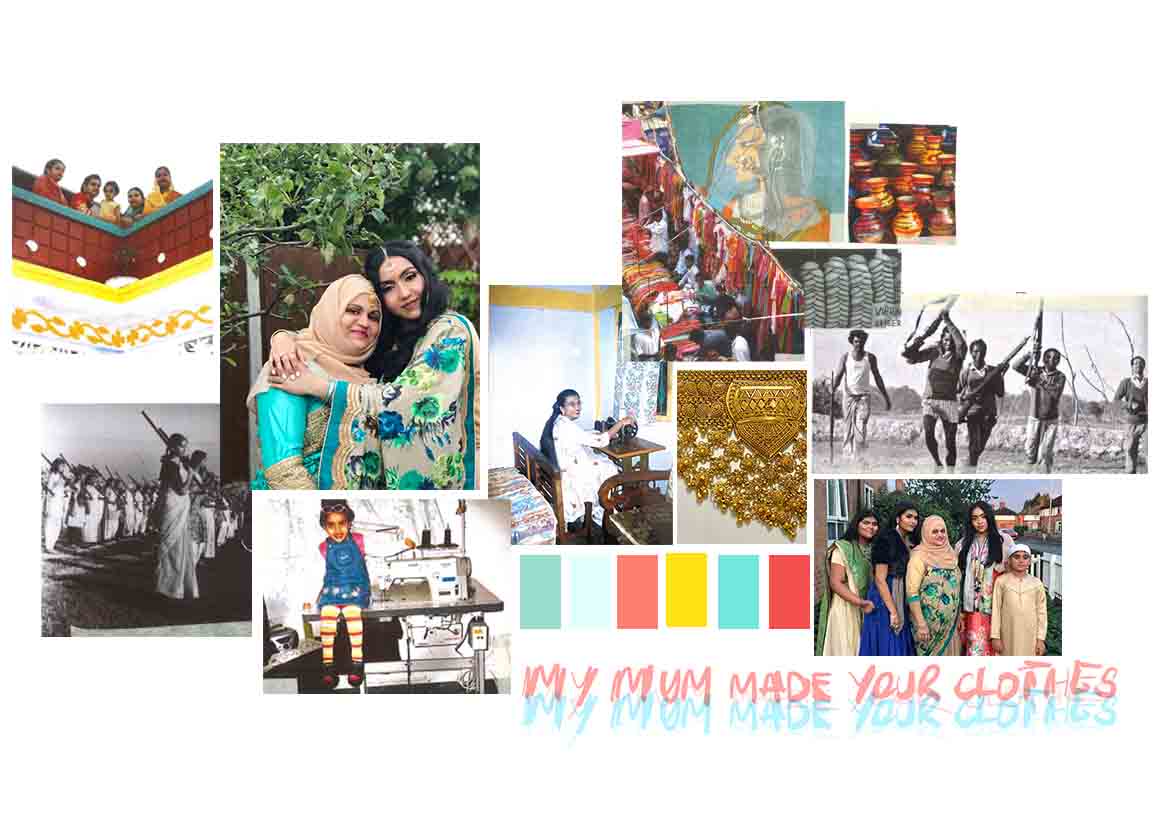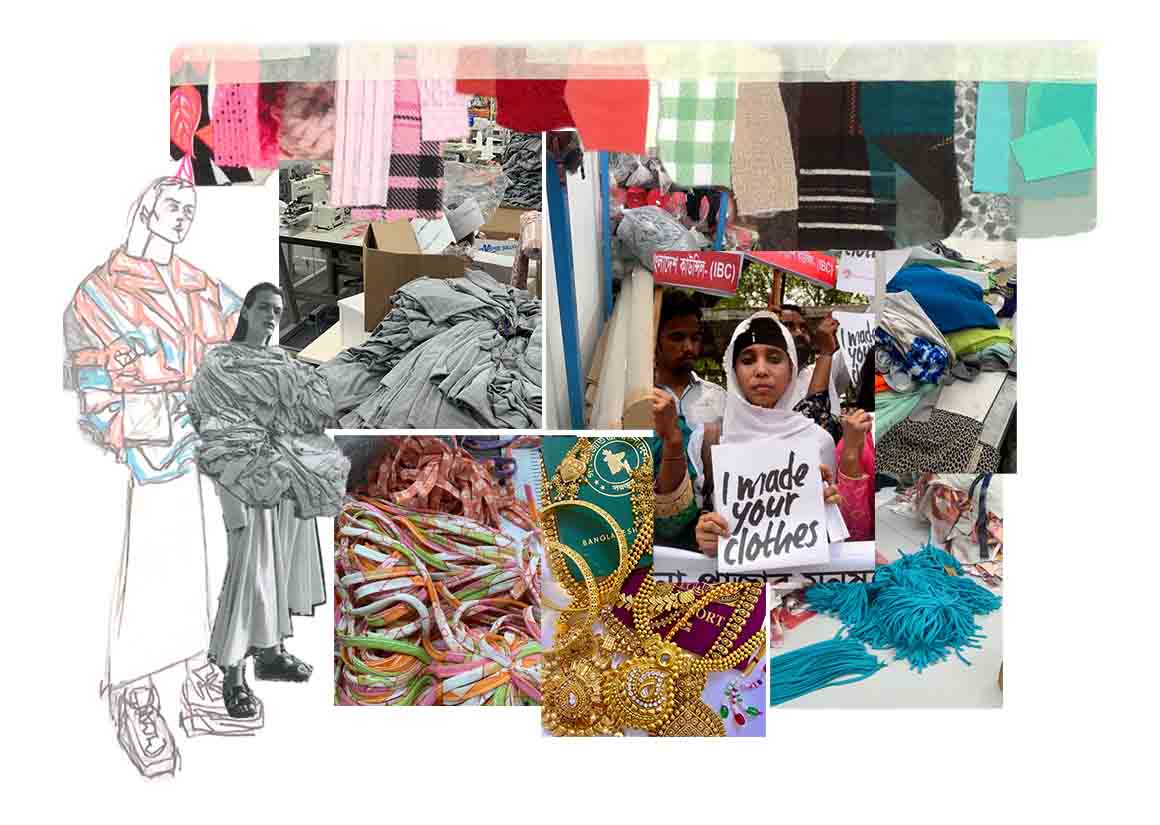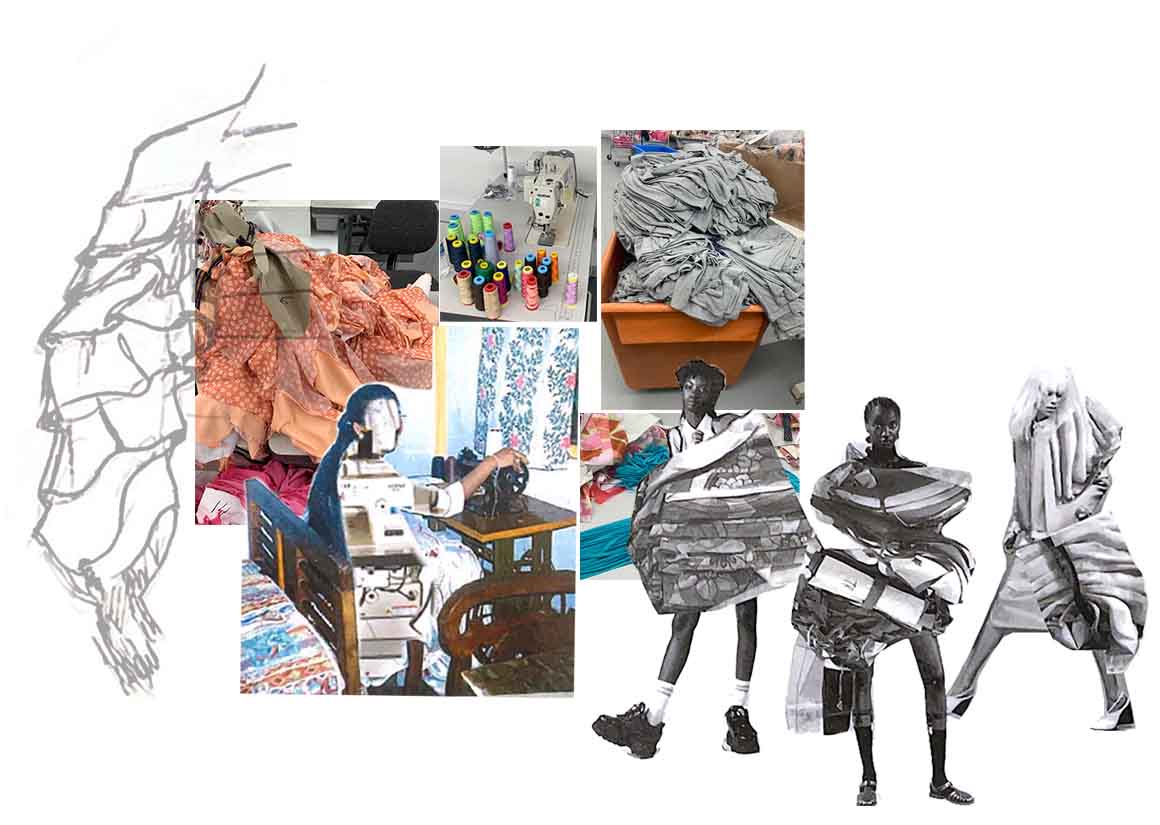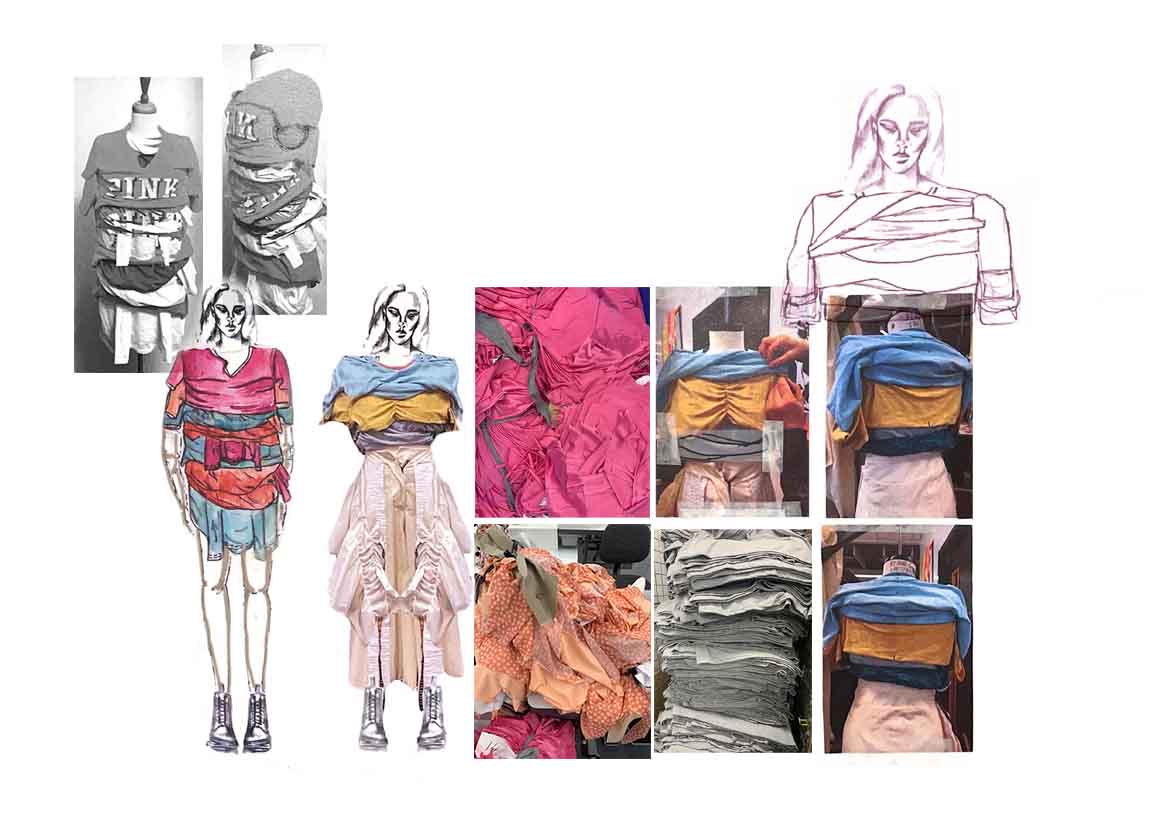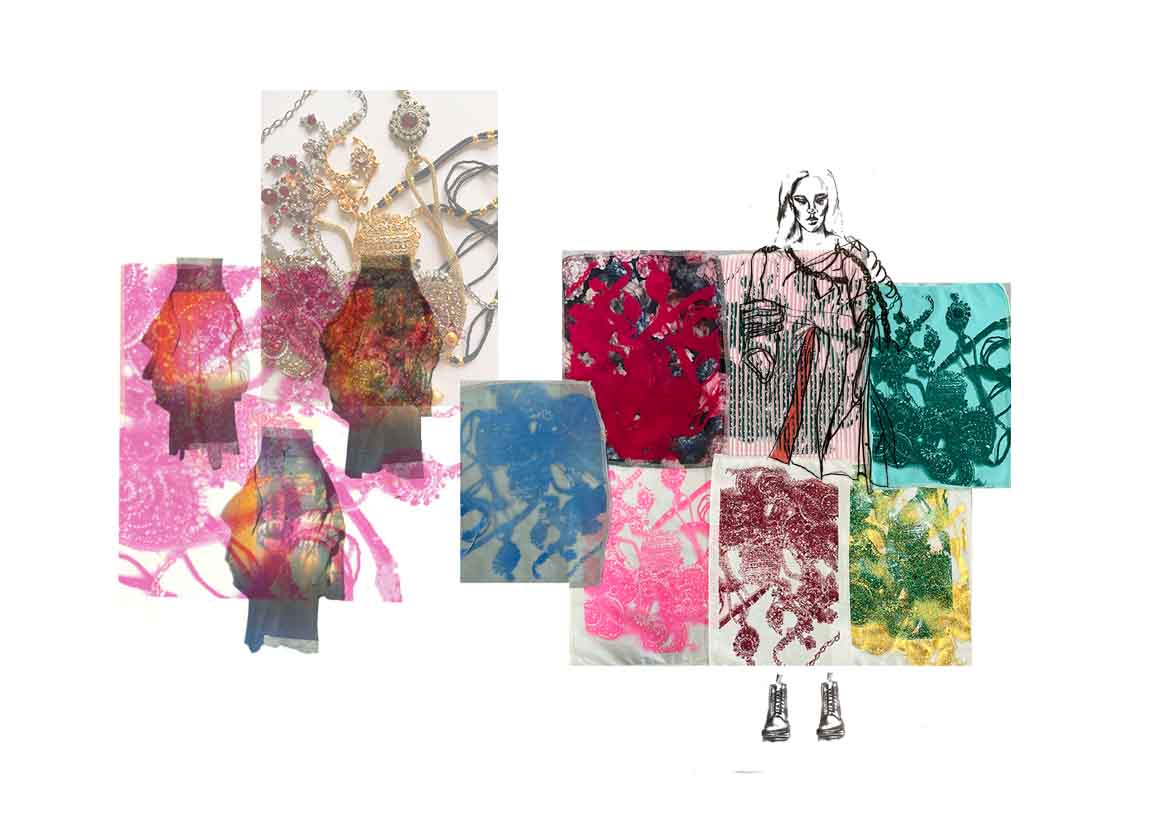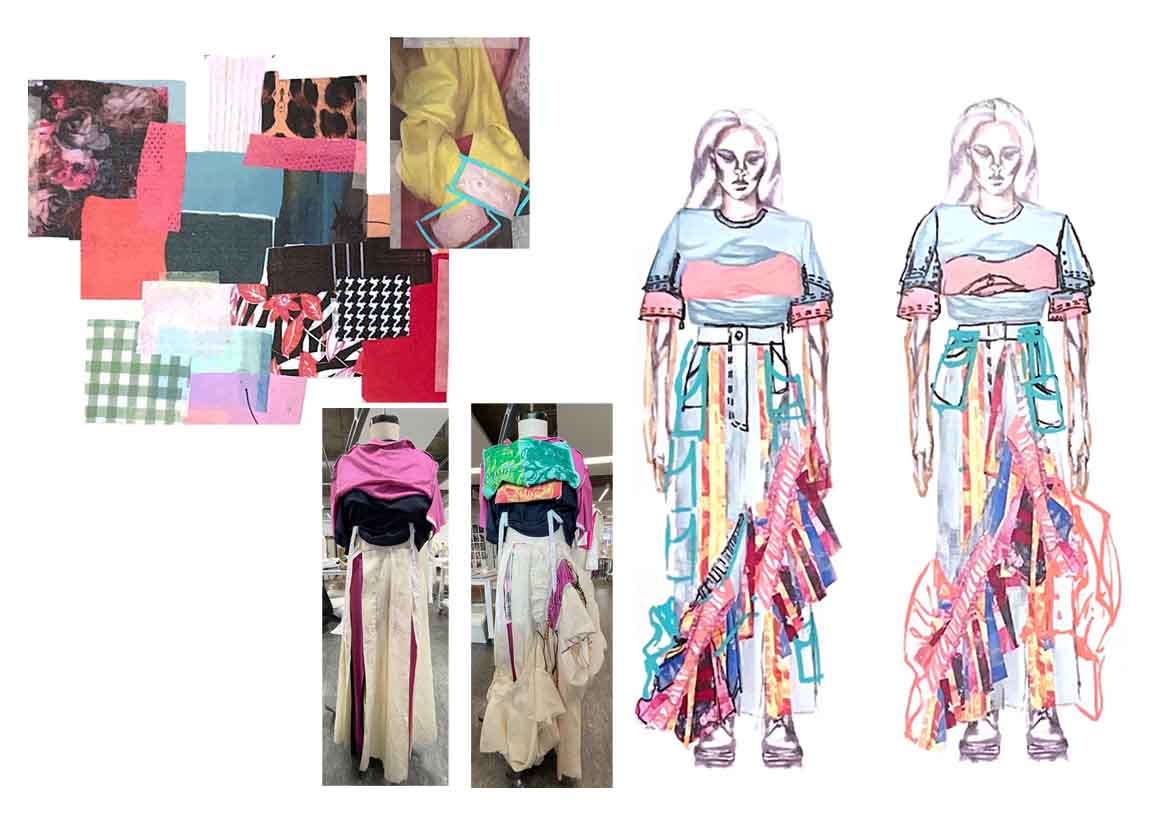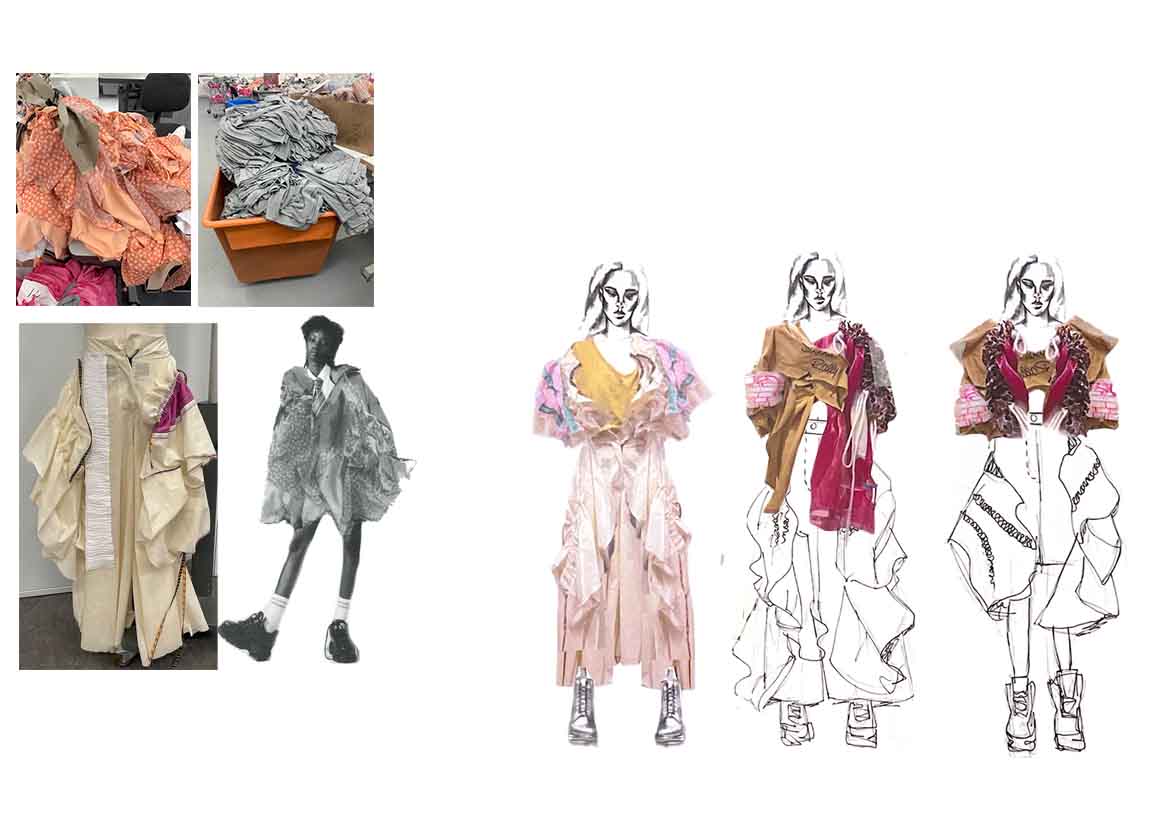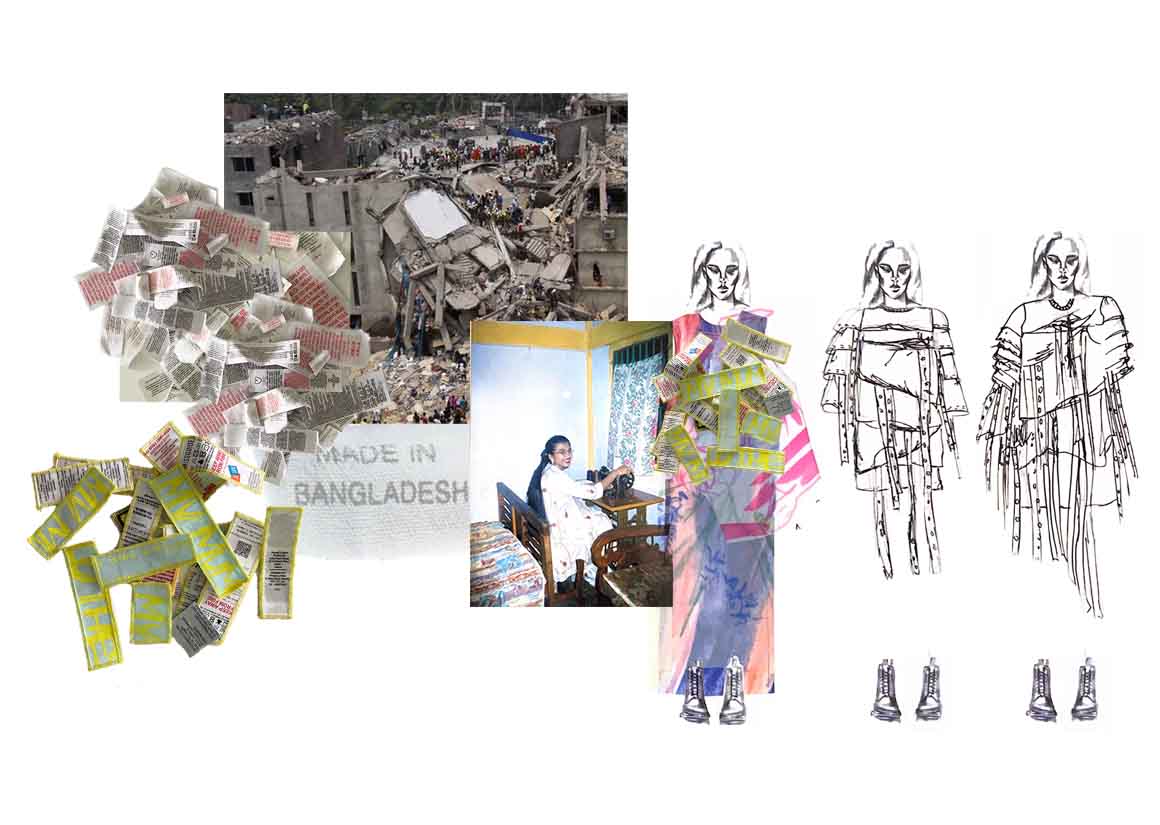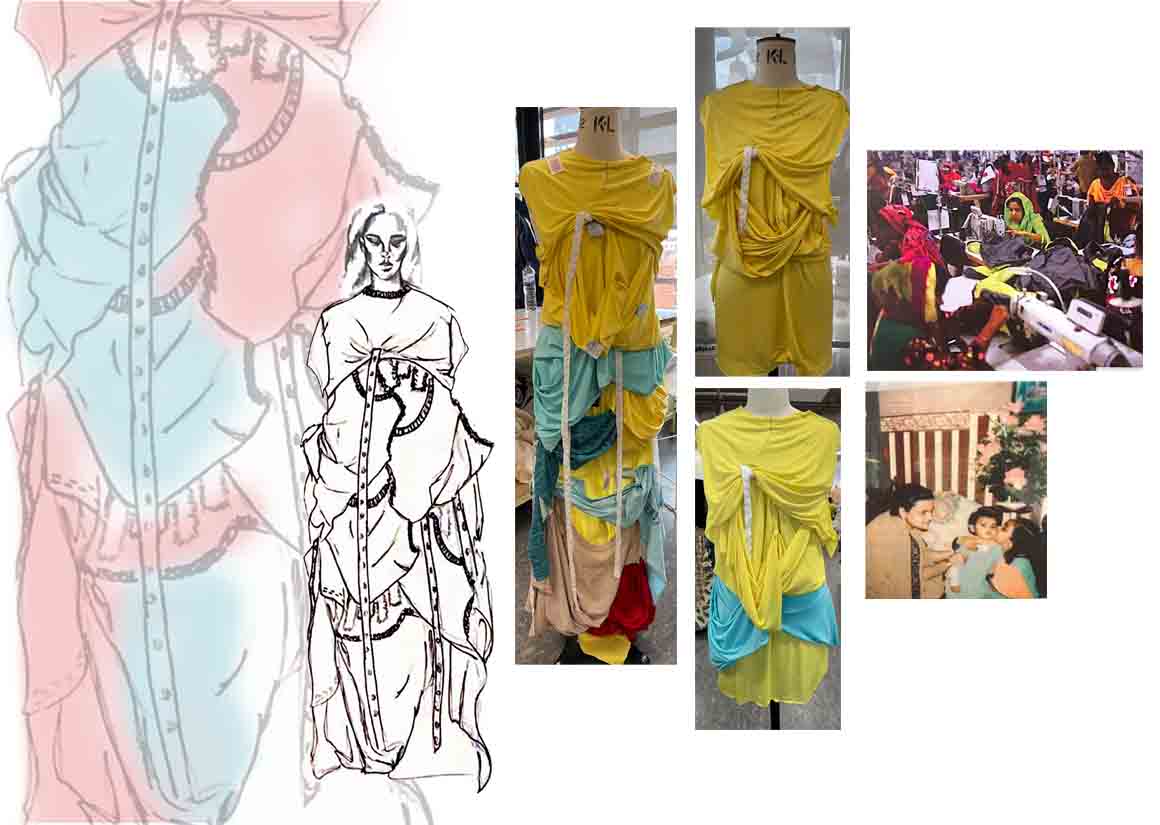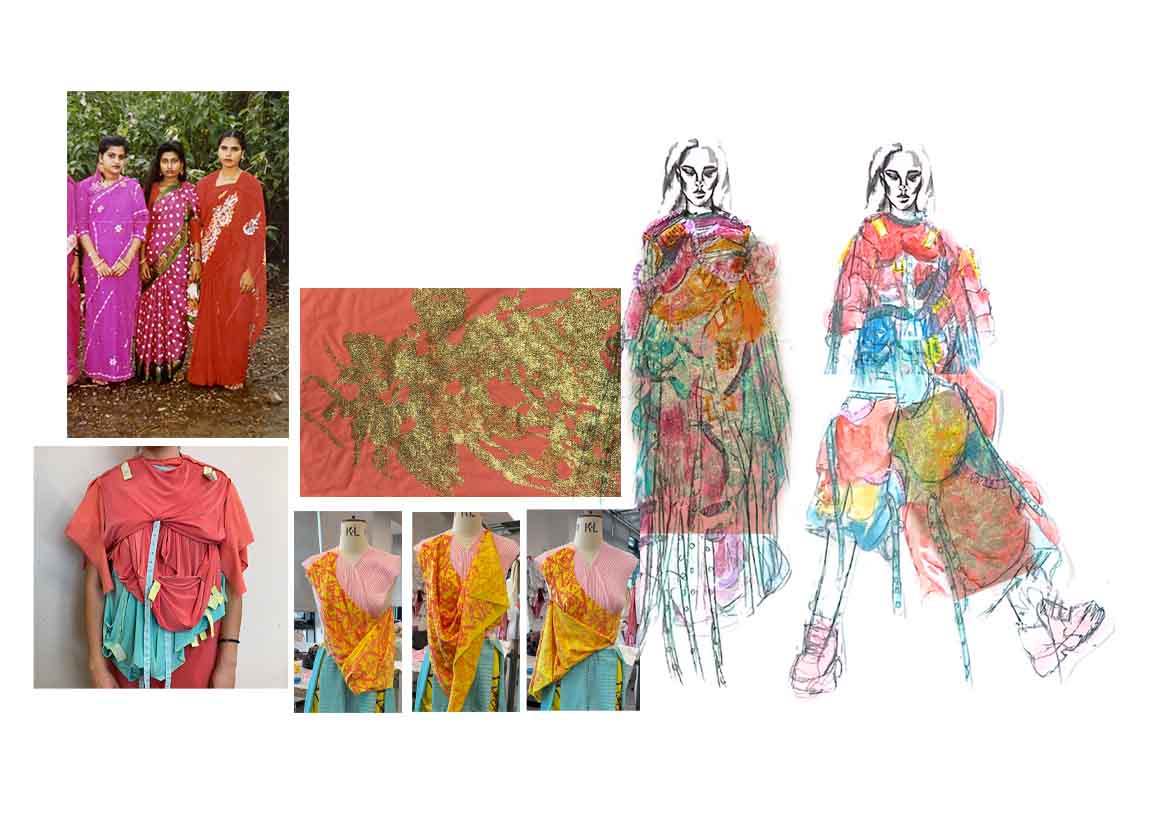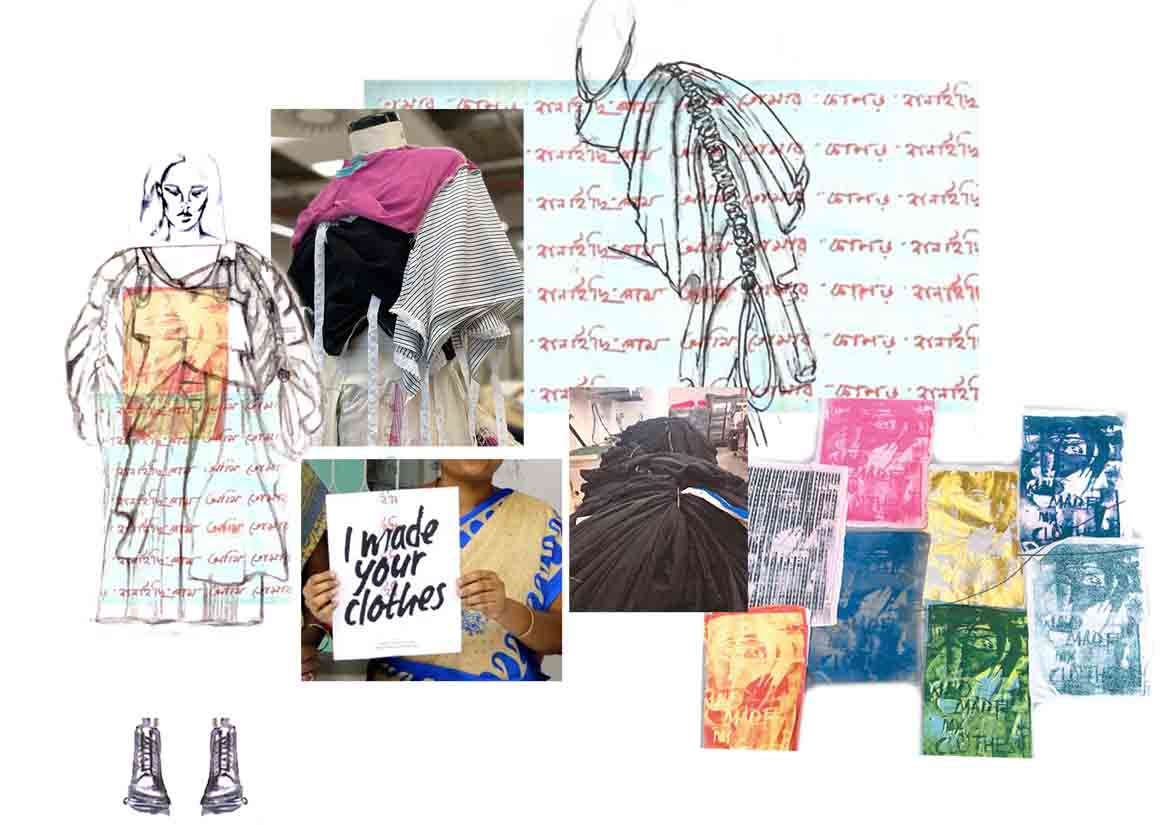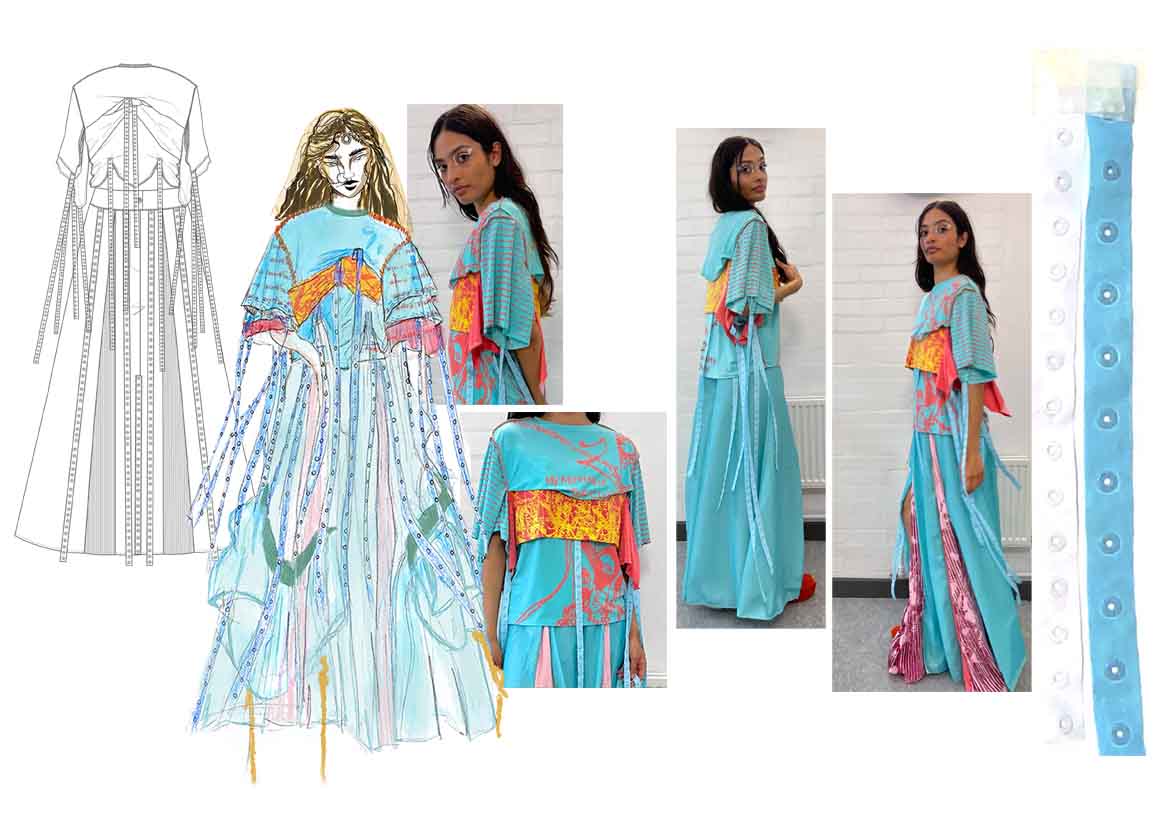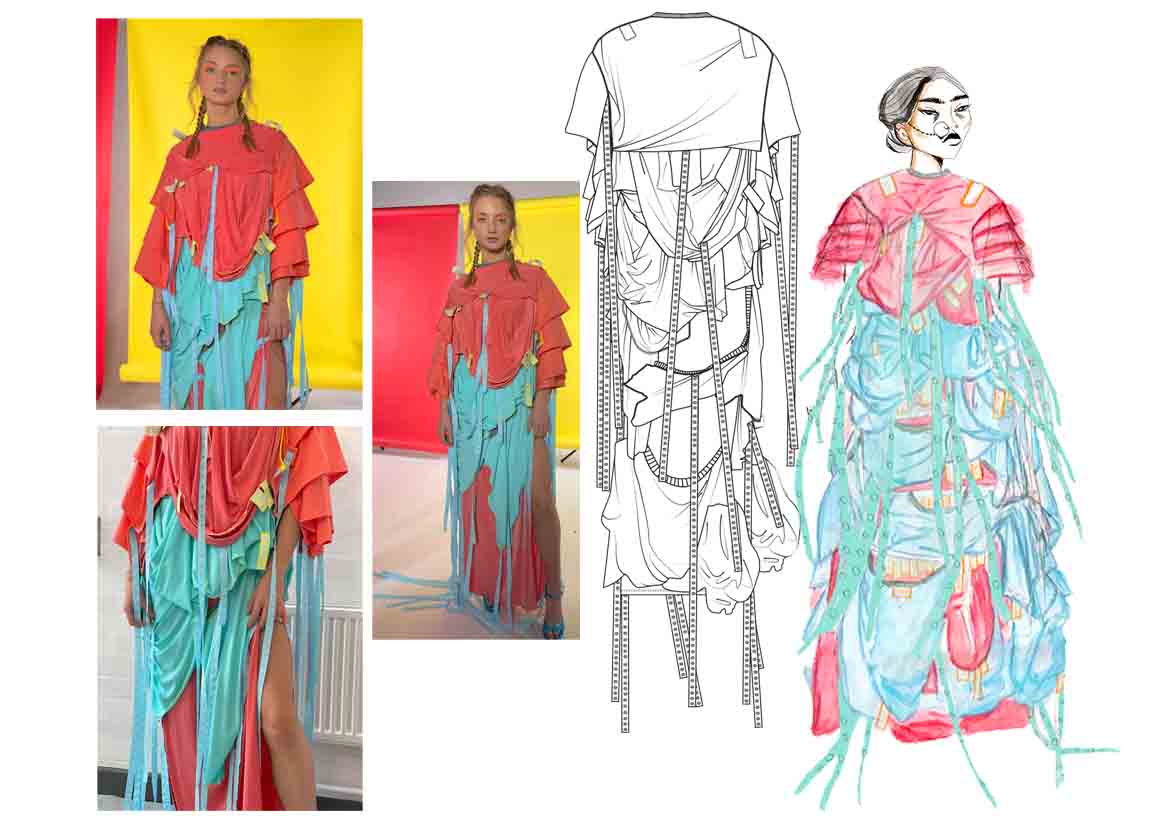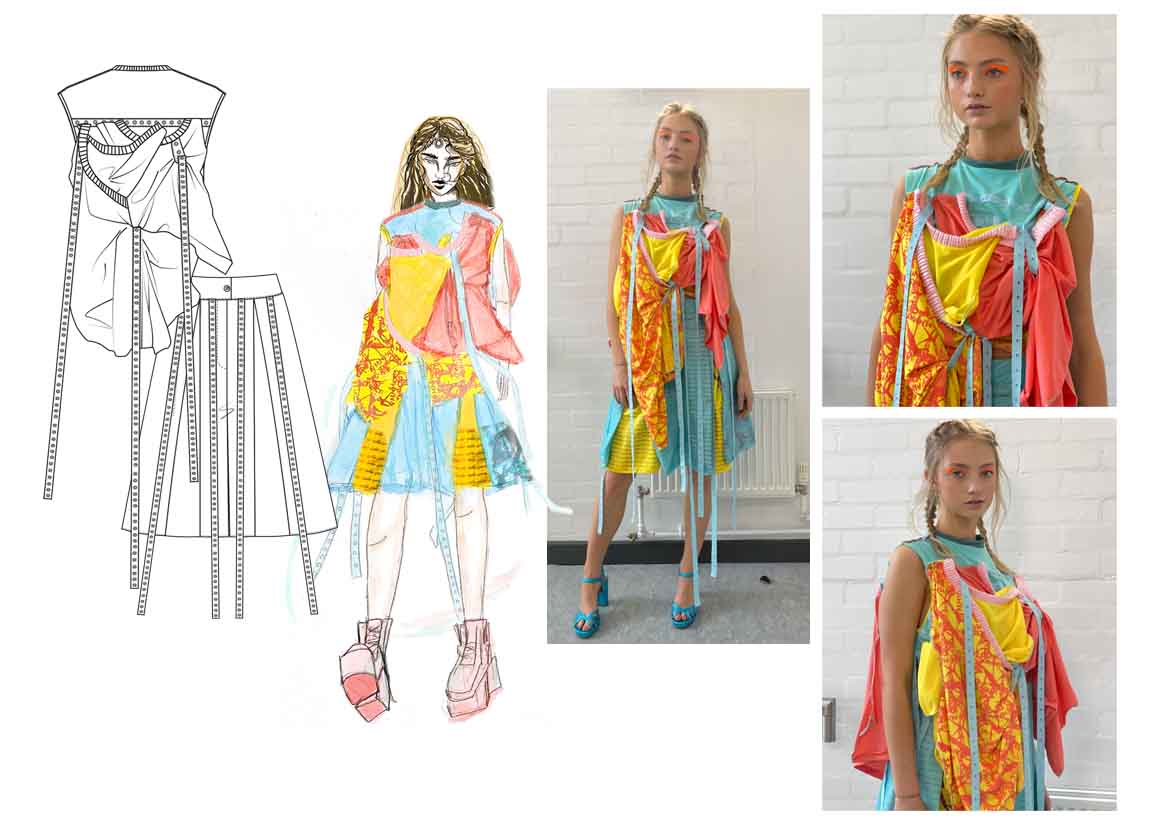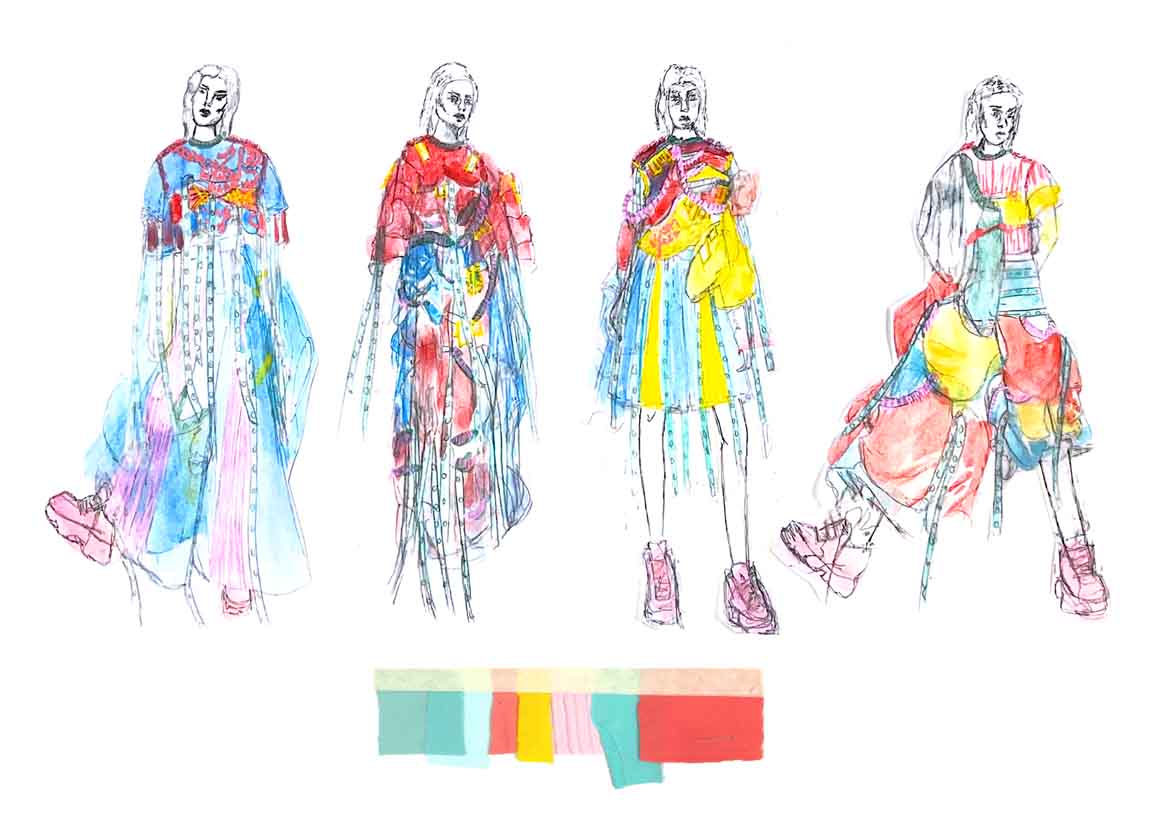
About Me
A fashion designer with a driving passion to create positive change
I am a British Bengali designer who specialises in but isn't limited to womenswear. I have a strong drive to use the platform I have as a designer to raise awareness on current issues in the world faced by ethnic minorities whilst creating contemporary styles, utilising sustainable choices and playful textiles that celebrates culture and diversity.
Growing up as the kid of a garment worker I noticed how there is a lack of representation of my people within the fashion industry yet my culture is exploited and appropriated constantly. My Bengali heritage is something I am incredibly proud of and something I wish to celebrate through my craft. I have a strong interest in fashion activism/revolution and sustainable fashion and aim to use these interests to highlight issues faced by ethnic minorities whilst also celebrating parts of South Asian culture that often go unappreciated.
INSPIRATION
My initial inspiration came from my own lived experience as an ethnic minority
My mum was my first introduction into the fashion industry. Growing up I had watched her work herself to the bone at these fast fashion factories and seeing how other women of colour did the same for their children, yet I never saw people who looked like us at the top of the fashion ladder. With the recent "who made my clothes?" movement it inspired this drive within me to create fashion that not only represents but also gives a voice to those that are invisible within fashion.
Through this collection I aimed to celebrate my Bangladeshi heritage whilst highlighting how the garment manufacturing industry is a source of livelihood for minority groups and their families, creating opportunities for South Asian women despite the lack of a western education and language barriers . With the focus being on garment workers i looked at the excess waste produced by fast fashion factories which inspired me to be as sustainable as possible within this collection, using all deadstock fabrics.
MY WORK
PORTFOLIOS
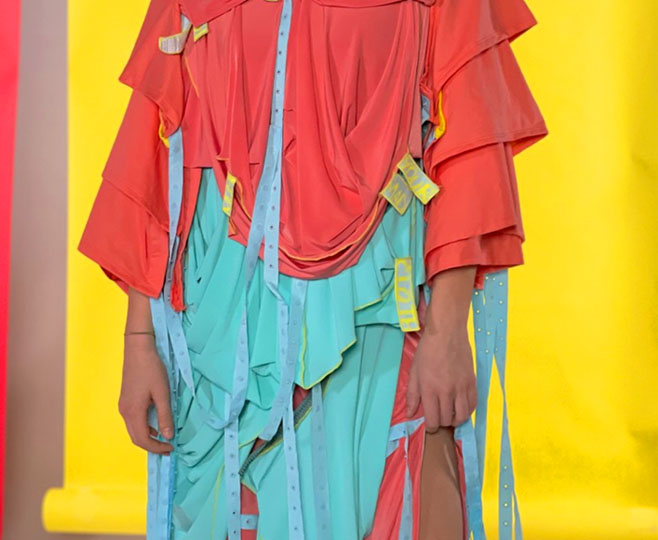
DETAIL
Sustainable fashion with a political cause
My final major project titled 'My mum made your clothes' is a collection that celebrates a culture and people from that culture which is often neglected and abused by the fashion industry. Made out of 100% deadstock fabrics donated from Leicester fast fashion factories, the outfits within my collection focuses on the manufacturing element of fast fashion and the repetitive work of garment work by using the same garment type repetitively on the body. Using popper tapes as a key design detail throughout my collection to represent how garment workers are viewed as disposable people who can be easily detached from the industry and aren't fully seen as an integral part of the industry despite them being the backbone of the fashion industry. I wanted to highlight and showcase how garment workers are more than just their job title and are mainly women of colour who come from ethnically rich backgrounds and are talented women with a lot more to offer if given the chance by the Western world.
